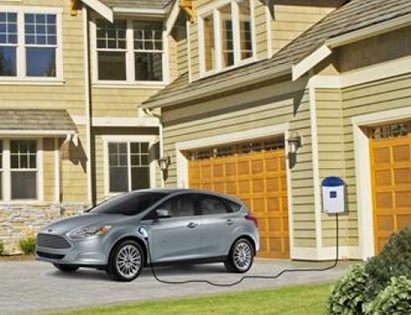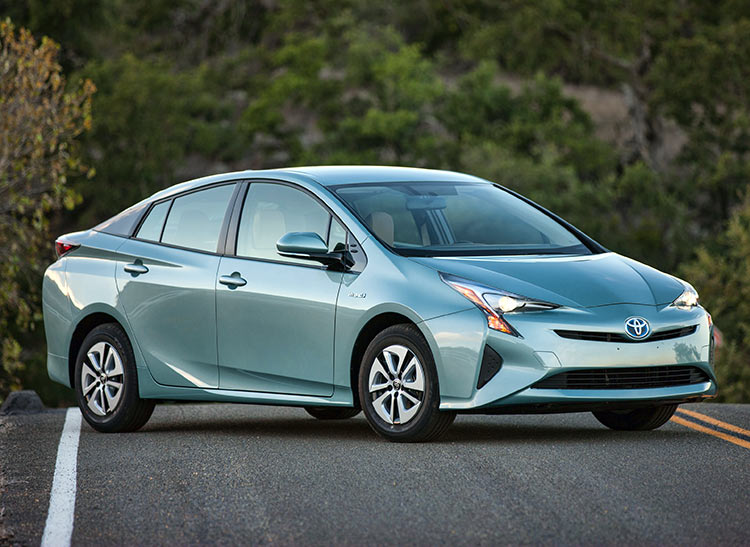EV tax credit continues: While still awaiting signature by the president, the comprehensive tax bill does keep the current tax credit alive. Electric vehicle owners  will still be able to claim a tax credit up to $7,500 on the purchase. The 200,000 unit cap will still be in place with Tesla, General Motors, and Nissan expected to hit that ceiling sometime next year. Automakers and organizations such as CALSTART and Plug In America had been lobbying for inclusion of the tax credit, which had been initially cut from a House tax bill.
will still be able to claim a tax credit up to $7,500 on the purchase. The 200,000 unit cap will still be in place with Tesla, General Motors, and Nissan expected to hit that ceiling sometime next year. Automakers and organizations such as CALSTART and Plug In America had been lobbying for inclusion of the tax credit, which had been initially cut from a House tax bill.
Musk’s accidental tweet: Tesla CEO Elon Musk received a wave of phone calls yesterday when he accidentally sent out his phone number to his 16.7 million Twitter followers. He’d been intending to send out the number to John Carmack, chief technology officer at Facebook’s Oculus virtual reality division. Several people tried calling his phone number and reported hearing a voicemail message from Musk stating, “By the Gods you’ve done it. Somehow you’ve found your way here to me. I offer you my congratulations and my respect.”
Uber loses big lawsuit in Europe: Uber is legally defined as a transport company, according to a ruling this week by the European Court of Justice. The ride-hailing giant  had argued that it merely provides a mobile app linking riders to car owners, and not a taxi or livery company. The case had come out after Barcelona ruled that Uber was to obey local taxi rules in that city. Uber downplayed the court ruling, saying that the company already operates under transportation laws in most European Union countries. Analysts say the ruling will have serious implications for Uber and other similar companies operating in the new gig economy. Uber and its new management team have a set of challenges to face after going through a difficult year.
had argued that it merely provides a mobile app linking riders to car owners, and not a taxi or livery company. The case had come out after Barcelona ruled that Uber was to obey local taxi rules in that city. Uber downplayed the court ruling, saying that the company already operates under transportation laws in most European Union countries. Analysts say the ruling will have serious implications for Uber and other similar companies operating in the new gig economy. Uber and its new management team have a set of challenges to face after going through a difficult year.

 Analysis results today showing a change in the market over the past year with consumers finding more options in fuel-efficient hybrids. The percentage of cost-effective hybrids has increased 16 percentage points compared to the 2016 study. For 26 of the 65 hybrids evaluated, or 40%, these hybrids have a lower total cost of ownership compared to their closest all-gasoline powered counterpart. Since 2012 the percentage of cost-effective hybrids had steadily decreased with the trend changing this year. Luxury hybrids had the highest percentage of cost-effective hybrids at 46%, The Lexus CT200h had the largest savings in the study, showing that buyers could save $7,750 over five years of ownership compared to the similarly equipped Lexus IS 200t.
Analysis results today showing a change in the market over the past year with consumers finding more options in fuel-efficient hybrids. The percentage of cost-effective hybrids has increased 16 percentage points compared to the 2016 study. For 26 of the 65 hybrids evaluated, or 40%, these hybrids have a lower total cost of ownership compared to their closest all-gasoline powered counterpart. Since 2012 the percentage of cost-effective hybrids had steadily decreased with the trend changing this year. Luxury hybrids had the highest percentage of cost-effective hybrids at 46%, The Lexus CT200h had the largest savings in the study, showing that buyers could save $7,750 over five years of ownership compared to the similarly equipped Lexus IS 200t.